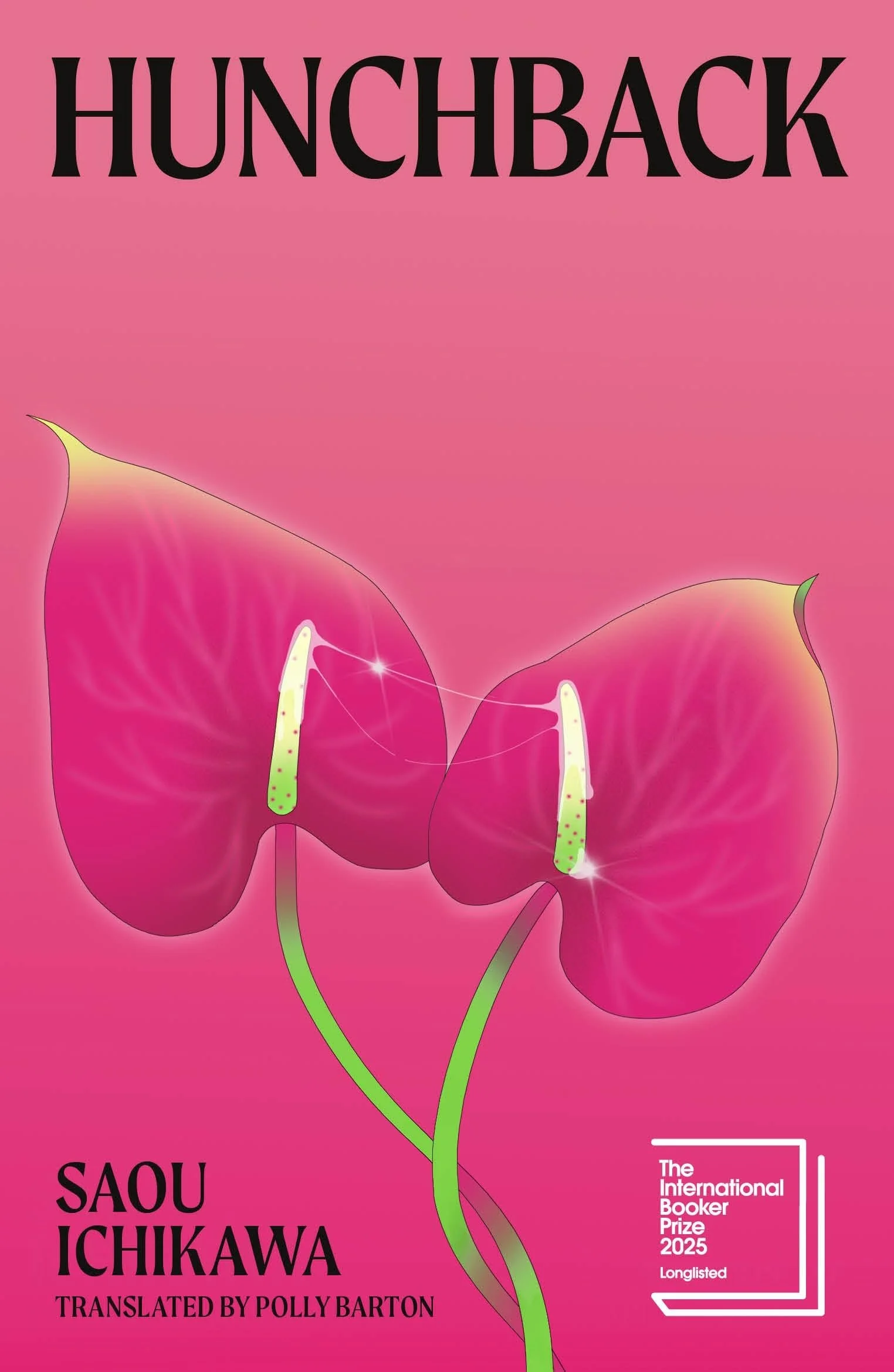Hunchback by Saou Ichikawa, translated by Polly Barton (Penguin) ~Ernie Hoyt
Hunchback is the debut novel by Japanese writer Saou Ichikawa. It won the 128th Bungakukai Prize for New Writers and the 169th Akutagawa Prize, one of Japan’s most prestigious literary awards, in 2023. She is Japan’s first disabled writer to receive the Akutagawa Award.
The book was originally published in the Japanese language as ハンチバック (Hunchback) by Bungeisha in 2023. The English edition, translated by Polly Barton, was published in 2025. Barton is also an author in her own right and has published two non-fiction books. She has translated a number of titles of Japanese books including Where the Wild Ladies Are (Asia by the Book, May 2021).
Ichikawa was born in 1979. She has congenital myopathy, a muscle disorder which confines her to a wheelchair. She has also been on a respirator since she was thirteen years old. She decided to become a writer at twenty as she felt her job opportunities were very limited due to her handicap.
The protagonist of Hunchback is also born with a congenital muscle disorder. Shaka Ishizawa has a severe curvature of her spine and must use a wheelchair and ventilator. She lives in a nursing home and makes a living by freelancing, contributing stories and articles to erotic online websites.
After writing Part 1 of her story, My Steamy Threesome with Super-Sexy Students in One of Tokyo’s Most Sought After-Swingers’ Club, she had to turn her attention to her body. She explains, “mucus had built up in my windpipe, and the alarm on my Trilogy ventilator was chirruping furiously”.
Ishazawa says that she’s been living in Nirvana for twenty-nine years, “ever since the day my underdeveloped muscles had prevented my heart and lungs from maintaining a normal level of oxygen saturation, and I’d grown faint and passed out by the classroom window in my second year of middle school”.
Ishizawa also spends a lot of time tweeting on Twitter. However, she says she has hardly any followers and never got any “likes”. She assumed that people didn’t know how to respond to a bed-bound woman who would tweet things like - “In another life, I’d like to work as a high class prostitute” or “I’d have liked to try working at McDonald’s”, “I’d have liked to see what it was like to be a high-school student”.
Another tweet she saved in her drafts on her iPhone was “I’d like to know what it’s like to have an abortion”. She says this is one of her tools to organize her thoughts. She has also saved tweets such as “I want to get pregnant, then have an abortion” and continues with “I can’t imagine a foetus growing properly inside this crooked body of mine”. She ends this line of thought with “My ultimate dream is to get pregnant and have an abortion, just like a normal woman”.
One day, one of the male carers at the facility she lives in tells her that he has read all of the material she’s written. He has read her sexploints on the erotic websites, he has read her tweets on Twitter.
Ishizawa then makes a proposal to the man. She would pay him one hundred fifty-five million yen to have a sex with her. Will the carer take Ishikawa up on her offer? Is this really what Shaka Ishikawa wants?
Only someone who suffers the same condition as Shaka Ishizawa could concoct a story so out of the ordinary that it may make a normal, healthy person think about the things they take for granted - being able to read a book, walking to the neighborhood convenience store, riding on trains. Everyday, ordinary things. Ichikawa shows the world that disabled people have the same hopes and dreams as normal people and that they can be successful as well.
Japan is still far behind the times where it comes to caring for the disabled. The handicapped are still shunned and are prone to be victims of prejudice. Perhaps if people like that were to read this book, they would learn what empathy means.
